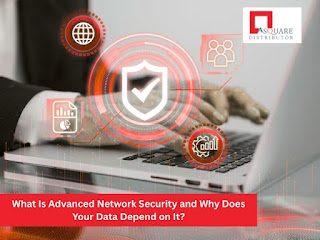Best Networking Solutions: Connecting Businesses to the Future
In a digital-first world, every organization—big or small—depends on efficient and reliable networking to thrive. Networking is no longer just about connecting computers; it’s about creating a powerful digital infrastructure that keeps businesses running smoothly. From enabling remote work to safeguarding sensitive data, the best networking solutions provide speed, security, and scalability. They are the unseen backbone that powers productivity, collaboration, and innovation.
This blog explores what networking solutions mean for modern businesses, their types, benefits, industry applications, and future trends.
What Are Networking Solutions?
Networking solutions refer to the combination of hardware, software, and services that ensure connectivity between people, devices, and systems. They provide:
-
Communication Tools: Seamless sharing of emails, files, and applications.
-
Secure Data Transfer: Protecting sensitive company information from threats.
-
Business Continuity: Keeping operations functional without interruptions.
-
Collaboration Platforms: Enabling teamwork across multiple locations.
Networking solutions can be designed for small offices, educational institutions, hospitals, retail outlets, or large enterprises with global reach.
Why Businesses Need Networking Solutions
The modern workplace thrives on collaboration and instant access to data. Without strong networking, businesses face:
-
Slow communication.
-
Poor collaboration between teams.
-
Data breaches and cyber risks.
-
Reduced productivity.
A reliable networking system ensures:
✅ Secure access to data anytime, anywhere.
✅ Reliable connections for hybrid and remote work models.
✅ Cost-efficient IT operations.
✅ Streamlined communication for faster decisions.
Types of Networking Solutions
1. Local Area Network (LAN)
LAN connects devices in a limited physical area such as an office or school. It ensures fast file sharing and is often cost-effective.
2. Wide Area Network (WAN)
For organizations with multiple branches in different cities or countries, WAN helps maintain a central communication system.
3. Wireless Networks (Wi-Fi)
Mobility is key in today’s workplace. Wireless networks allow employees to connect laptops, smartphones, and IoT devices without being tied to cables.
4. Cloud Networking
With the rise of cloud computing, businesses increasingly rely on cloud networking for storage, applications, and services. Cloud solutions offer flexibility and reduce the need for expensive hardware.
5. Virtual Private Networks (VPNs)
VPNs protect sensitive information while enabling secure remote access. They are critical for businesses that support remote teams.
6. Software-Defined Networking (SDN)
SDN provides centralized control and better flexibility for large organizations with complex IT structures.
Benefits of the Best Networking Solution
-
Enhanced Productivity
Employees can collaborate without downtime or delays, increasing efficiency. -
Improved Security
Firewalls, encryption, and monitoring tools safeguard sensitive business data. -
Cost Savings
Networking solutions like cloud-based systems reduce the need for costly infrastructure. -
Scalability
As businesses expand, networks can grow without major changes. -
Better Collaboration
Networking supports video conferencing, file sharing, and real-time project management across locations. -
Remote Work Support
With secure connections, employees can work from anywhere without compromising company data.
Networking Solutions by Industry
Retail
Networks manage POS systems, customer data, and online sales platforms.
Healthcare
Hospitals use networking solutions for secure access to patient data, telemedicine, and inter-department collaboration.
Education
Schools and universities use networks for e-learning platforms, online exams, and digital resources.
IT & Software Firms
Depend on high-speed networks, cloud solutions, and VPNs for global project collaboration.
Manufacturing
Factories use IoT-connected networks to manage equipment, monitor productivity, and streamline supply chains.
Future Trends in Networking Solutions
-
5G Networks: Ultra-fast connectivity with low latency, ideal for IoT and remote applications.
-
AI in Networking: Automating troubleshooting, optimizing traffic, and predicting issues.
-
Edge Computing: Processing data closer to its source for faster response times.
-
Zero Trust Security Models: Ensuring no device or user is trusted by default.
These trends highlight that networking is evolving into smarter, faster, and more secure systems.
How to Choose the Best Networking Solution
When selecting the right networking solution for your business, consider:
-
Company Size & Growth Plans: Can the system expand with your business?
-
Security Needs: Does it offer strong protection against cyber threats?
-
Ease of Use: Is the solution simple to manage and monitor?
-
Integration: Can it work with your current IT setup?
-
ROI (Return on Investment): Does it improve efficiency while reducing costs long term?
Conclusion
Networking solutions are the foundation of modern business operations. Whether you’re a small company or a multinational enterprise, the best networking solution ensures seamless connectivity, reliable performance, and robust security. It improves collaboration, supports digital transformation, and prepares organizations for the future of work.




Comments
Post a Comment